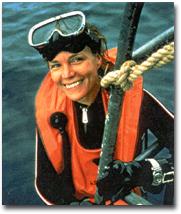
Sylvia Earle
Called “Her Deepness” by The New Yorker and The New York Times, and the "Carl Sagan of our Oceans" according to USA Today, Dr. Sylvia Earle is a marine biologist, author, lecturer, scientific consultant, co-founder and director of Deep Ocean Engineering, Inc., and president of Deep Ocean Exploration and Research, Inc. Earle's impressive list of accomplishments is enhanced by her genuine love for the ocean, exploration and science in general. She is the most important and active advocate for the research and protection of one of our most precious and largely unexplored frontiers-our seas. Formerly the Chief Scientist of the National Oceanic and Atmospheric Administration, Earle is an Explorer-in-Residence at National Geographic. She also serves as the first woman honorary president of The Explorer's Club in 96 years.
Earle's presence and impact at National Geographic has been remarkable, where in less than 12 months, she created and gathered funding for the Sustainable Seas Expedition. The SSE explores and researches 12 National Marine Sanctuaries that surround the North American continent, working to increase U.S. and international recognition and caring for the oceans by the public, policy-makers and institutions. The project also seeks to increase the nation's ability to conserve the natural and cultural resources of the oceans and establish the utility of new submersibles, which will allow for advanced exploration and research. In keeping to the commitment to further involve the public in caring for our oceans, schoolchildren and teachers will be able to follow these missions on the Internet and interact, while those who are near the sanctuaries during the expeditions will find hands-on ways to participate.
Earle made her first dive in 1952, at the age of 16, in the Weekiwatchee River in Florida. She wore a borrowed copper diving helmet and breathed air pumped through a hose by a compressor. Twelve years later, when Earle was preparing for her doctorate in marine botany at Duke University, she was invited to join a six-week expedition aboard Harry Truman's old presidential yacht. She was the only woman among 70 men and quickly learned the necessity and power of self-sufficiency and a good sense of humor. Six years later, she found herself part of a group of five women unexpectedly allowed to participate in the NASA aquanaut program called Tektite II. The two weeks Earle spent in the 50-foot deep underwater habitat changed her view of the ocean forever and further inspired her to "go deeper." In 1985, she made a daring solo descent to 3,000 feet in the Pacific Ocean just off the coast of San Diego. Earle still holds the record for the deepest untethered solo dive and has led more than fifty expeditions worldwide involving in excess of 6000 hours underwater.
Recognized by the Library of Congress as a "Living Legend" and recently inducted into the National Women's Hall of Fame, she is the author of more than 100 publications concerning marine science and technology including the books, Sea Change (1995) and Wild Ocean (1999). She has participated in numerous television productions and given scientific, technical and general interest lectures in more than 60 countries. Her books for children include Hello Fish, Sea Critters and Dive!, a winner of five awards for excellence.
She serves on the board for numerous non-profit organizations and is a council member for both the World Wide Fund for Nature (WWF International) and the World Wildlife Fund, U.S.A. She is also an honorary member of the Board of the New England Aquarium and the Florida Aquarium. Her honors include the Order of the Golden Ark by the Prince of the Netherlands, the Department of the Interior's Conservation Service Award, The Society of Women Geographer's Gold Medal, the Bal de la mer Foundation's Sea Keeper Award and the Marine Technology Society Compass award, among countless others.
Her company, Deep Ocean Exploration and Research continues to design advanced systems for submersibles, ultimately making the diving machines more accessible to the public. "With knowing comes caring," says Earle, "and with caring there is the hope that we will find a place for ourselves within the natural systems that sustain us."
NOTE: Bio is as it appeared in the Forum playbill for "Scientific Journey" on December 7, 2002.
Special thanks to our Lifetime Patrons





 View All Sponsors ›
View All Sponsors ›

Sign-up here to receive email updates from The Connecticut Forum!
We will send you exciting updates about our season, panelist announcements, special events, news and information that will keep you "in the know."
Your personal information is safe with us. We will never sell or share your personal information with anyone else.
